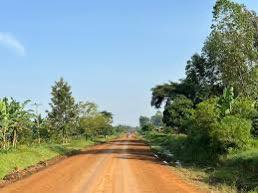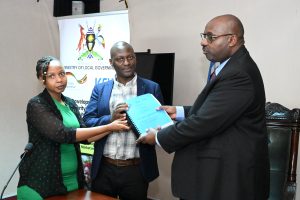
#OutToLunch: Farmers are willing to do the hard work, government must do the same
By Denis Jjuuko Agriculture has been for long touted as the answer to the poverty that is exhibited everywhere you turn in Uganda and in most parts of Africa. A recent study by Global Right Alert even confirmed that Uganda can get UShs10 trillion (nearly US$3 billion) annually from coffee. Our much-heralded oil revenue is estimated at about US$2 billion annually. When I read snippets of the report, I was at first tempted to ask where should we put our money? I quickly remembered that developing a country can’t be one directional. Extract the oil and get that cool US$2 billion every year and work on the coffee to get that US$3 billion too. Although many people have been focusing on coffee given the recent increment in quantity of production in central Uganda and elsewhere and the resulting high prices that have turned peasants into shilling millionaires, there is a lot that still needs to be done. The majority of farmers depend on unpredictable rainfall yet we are experiencing irregular seasons and changes to the climate. It is no longer guaranteed that it will rain during the months we all knew as rainy seasons. And sometimes when the rains come, it is very little or too much. No farmer wants to experience either. We still depend on the hand hoe to till the land to the extent that it is one of the most distributed items by candidates seeking support in the upcoming general elections. Although many farmers have small plots of land on which they grow food and cash crops, a hand hoe is 19th century stuff. Luckily, the Chinese have been kind enough to invent petrol powered ones that can help a farmer till the land faster and easily. The traditional hand hoe is a back breaking tool. One of the reasons many young people would rather sell the land, buy a boda boda, which they turn into a bed for daytime napping due to lack of passengers than spending the day in the garden. Inputs are expensive and fake. There is a need for the Uganda National Bureau of Standards to do their job to ensure only genuine fertilizers, pesticides and other inputs are on the market. It shouldn’t be very difficult to find who makes or import fake inputs. We can’t always blame everything on the impunity of some individuals with high political and military connections. If such people found a serious officer desirous of doing their job, they would back down. A certain government entity that owns a printery always refuses to print campaign posters of highly connected individuals on credit. The individuals usually curse the managers and promise to teach them a lesson but return with cash and pay. If they had found weak managers, they would abuse the system. A public officer who fails to reprimand the so-called Gamba Nogu (people with military and political connections) is just weak and wants to use the system to enrich themselves illegally in many cases. The other problem for Ugandan farmers is transportation. Some are able to grow significant amounts of produce but transport is a very big cost to bring the goods from the farmer to the market where the prices are not laughable. Agricultural produce can be rotting in a garden less than 100km to the market where there is a high demand. It was thus refreshing to read in newspapers last week that there is a project, at least for the northern region, that is working to change this narrative. With support from the Germans, the Ministry of Local Government is implementing the Rural Development and Food Security in Northern Uganda (RUDSEC) project. This newspaper reported that more than 1,300km of roads connecting farmers to markets will be rehabilitated and upgraded in Acholi, Lango and Teso regions. I regularly travel across the country and including these regions. Sometimes you find farmers with vegetables being sold at giveaway prices. One of the challenges they face is transport. The rundown Sahara or Isuzu can’t manage the roads many times. Yet we should know that an improved transport and market infrastructure would allow year-on-year accessibility. The cost of inputs would reduce because it wouldn’t take one so much to buy them. Ideally that should lead to increased inputs. Many farmers are willing to do the hard work to increase production. Entrepreneurs will set up the processing plants for value addition. The government should do its part too. Pay road contractors on time, make genuine inputs affordable, provide technical expertise and access to the market. Poverty would be history for many people. The writer is a communication and visibility consultant. djjuuko@gmail.com

